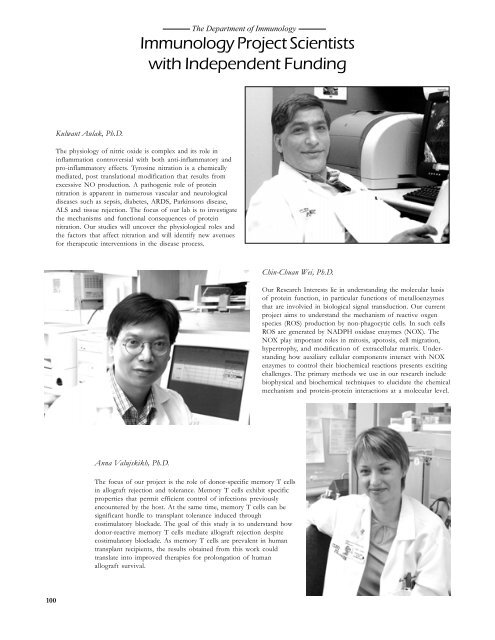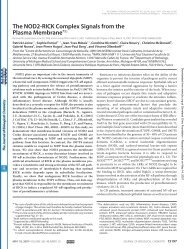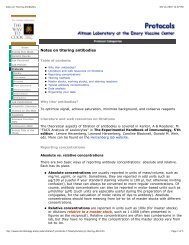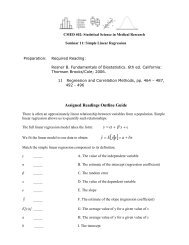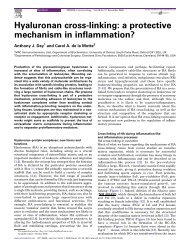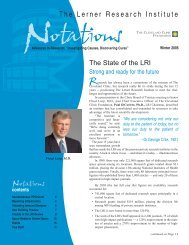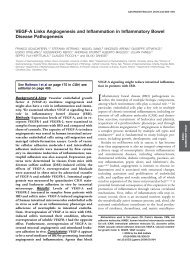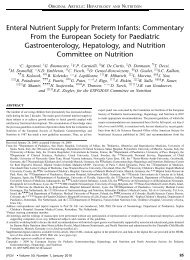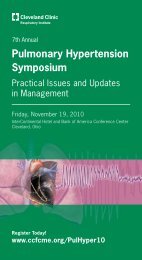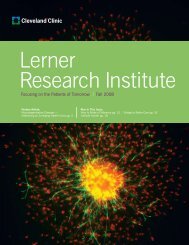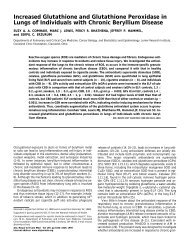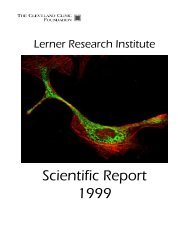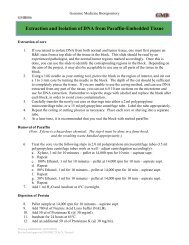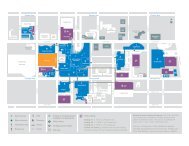Scientific Report 2003-2004 - Cleveland Clinic Lerner Research ...
Scientific Report 2003-2004 - Cleveland Clinic Lerner Research ...
Scientific Report 2003-2004 - Cleveland Clinic Lerner Research ...
- No tags were found...
Create successful ePaper yourself
Turn your PDF publications into a flip-book with our unique Google optimized e-Paper software.
The Department of ImmunologyImmunology Project Scientistswith Independent FundingKulwant Aulak, Ph.D.The physiology of nitric oxide is complex and its role ininflammation controversial with both anti-inflammatory andpro-inflammatory effects. Tyrosine nitration is a chemicallymediated, post translational modification that results fromexcessive NO production. A pathogenic role of proteinnitration is apparent in numerous vascular and neurologicaldiseases such as sepsis, diabetes, ARDS, Parkinsons disease,ALS and tissue rejection. The focus of our lab is to investigatethe mechanisms and functional consequences of proteinnitration. Our studies will uncover the physiological roles andthe factors that affect nitration and will identify new avenuesfor therapeutic interventions in the disease process.Chin-Chuan Wei, Ph.D.Our <strong>Research</strong> Interests lie in understanding the molecular basisof protein function, in particular functions of metalloenzymesthat are involvied in biological signal transduction. Our currentproject aims to understand the mechanism of reactive oxgenspecies (ROS) production by non-phagocytic cells. In such cellsROS are generated by NADPH oxidase enzymes (NOX). TheNOX play important roles in mitosis, apotosis, cell migration,hypertrophy, and modification of extracellular matrix. Understandinghow auxiliary cellular components interact with NOXenzymes to control their biochemical reactions presents excitingchallenges. The primary methods we use in our research includebiophysical and biochemical techniques to elucidate the chemicalmechanism and protein-protein interactions at a molecular level.Anna Valujskikh, Ph.D.The focus of our project is the role of donor-specific memory T cellsin allograft rejection and tolerance. Memory T cells exhibit specificproperties that permit efficient control of infections previouslyencountered by the host. At the same time, memory T cells can besignificant hurdle to transplant tolerance induced throughcostimulatory blockade. The goal of this study is to understand howdonor-reactive memory T cells mediate allograft rejection despitecostimulatory blockade. As memory T cells are prevalent in humantransplant recipients, the results obtained from this work couldtranslate into improved therapies for prolongation of humanallograft survival.100


